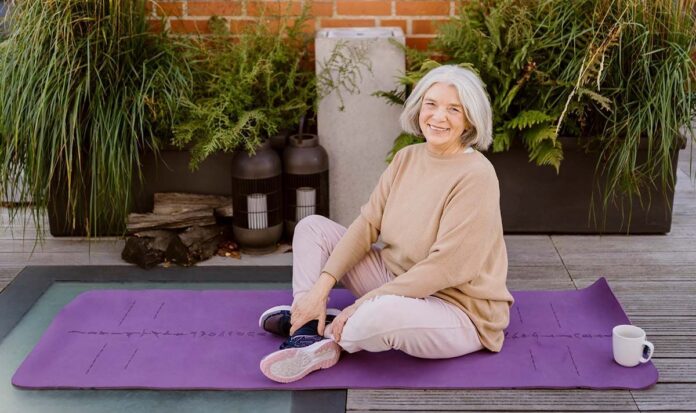Doctor shares how sit and rise test could predict your longevity. (Image: GETTY) If you could gaze into a crystal ball, the search for an answer to how long you’ll live would probably be high up on the list for many. While predicting the future is the stuff of fantasy novels, your body offers some clues about your overall lifespan. A doctor featured on the Today show has shared a straightforward test that could provide a window into your mortality . Speaking on the programme, NBC News medical contributor Dr Natalie Azar demonstrated how to perform the simple ‘sit to stand test’, also known as sit-rising test, that can help determine the longevity of someone between the ages of 51 to 80. The test is pretty simple. All you need is to get your body from standing to sitting cross-legged, and then go back to standing. However, you shouldn’t use any other parts of your body apart from your legs and core to help you get up and down. If you need to use any other parts of your body, you have to subtract points from the total score of 10 on your way up and down for doing the following: Hand used for support: -1 point Knee used for support: -1 point Forearm used for support: -1 point One hand on knee or thigh: -1 point Side of leg used for support: -1 point. Extremely Important Sitting Rising Test Predicts How Long You’ll LiveFlexibility, balance and muscle strength are key indicators of longevity. The SRT (sit-rising-test) is a simple, quick, accurate test to motivate you to regularly make it to the gym! https://t.co/faEovr5CL5 pic.twitter.com/sKbHyzVd6a — Don Crumlin (@Don_Crumlin) May 1, 2019 The test measures multiple longevity factors, including heart health , balance, agility, core and leg strength and flexibility. A study, published by the European Society of Cardiology , found a link between the test score and how long people lived . Looking at 2002 participants, the research team found that musculoskeletal fitness assessed by the test was a significant predictor of mortality in 51 to 80-year-old subjects. Those who scored in the lowest range, marked between zero to three, had up to a six times greater chance of dying than those in the highest scores (eight to 10). From a healthy diet to exercise, there are many ways to boost longevity. (Image: Express.co.uk) About 40 percent of those in the zero to three range died within 11 years of the study. However, the subjects who scored the lowest also tended to be the oldest. Dr Azar added: “The study found that the lower the score, you were seven times more likely to die in the next six years. ‘Eight points or higher is what you want. “As we get older, we spend time talking about cardiovascular health and aerobic fitness, but balance, flexibility and agility are also really important.’ Despite the interesting findings, Dr Greg Hartley, Board Certified Geriatric Clinical Specialist and associate professor at the University of Miami, told the Atlanta Journal-Constitution that the study should be taken with a grain of salt. Dr Hartley said: ‘Frailty, strength, muscle mass, physical performance – those things are all correlated to mortality , but I would caution everybody that correlation doesn’t mean causation.’ Furthermore, it’s important to note that the test doesn’t take into account injuries or disabilities that may make performing it impossible.
Doctor shares simple at-home test that could predict how long you’ll live
Sourceexpress.co.uk
RELATED ARTICLES


